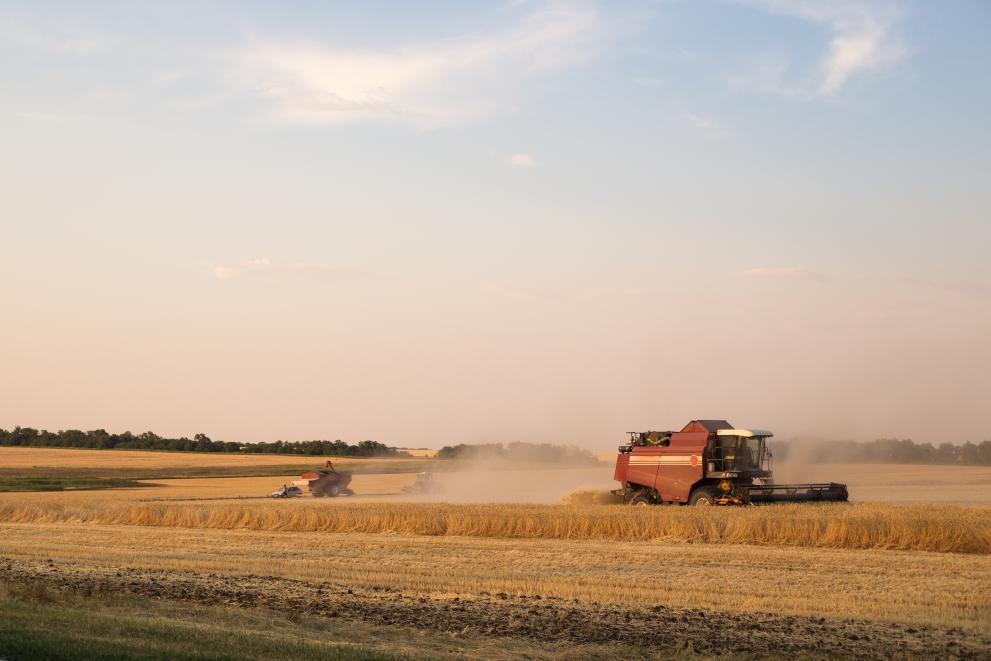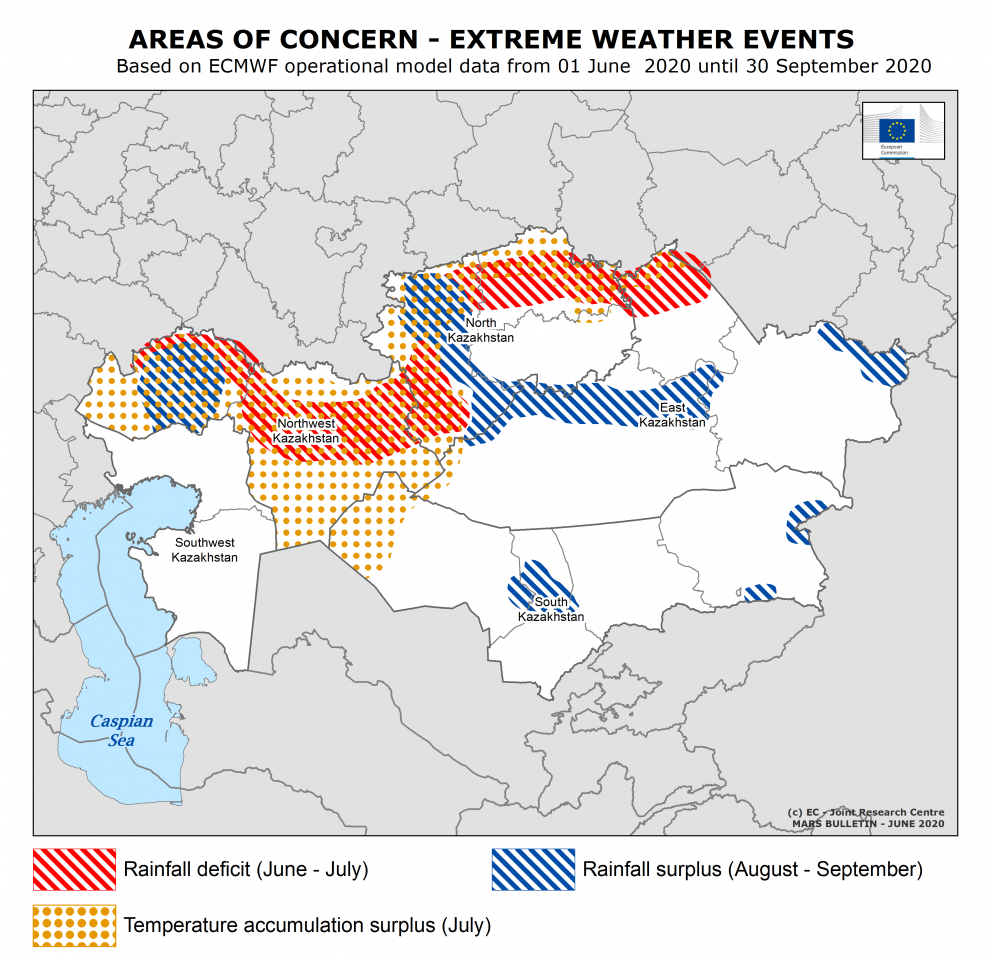
Two editions of the JRC MARS Bulletin global outlook series were published today, on Russia and Kazakhstan.
Reasonable yields expected in Russia
After a successful wintering, frost and a spring rainfall deficit negatively affected the growth of winter cereals in the southern and some western regions of European Russia.
Since then, high temperatures and drought conditions have further compromised the yield formation of winter cereals in the south. In contrast, favourable conditions for crop growth and development prevailed in the Central and Volga okrugs; however, abundant rain during ripening and harvesting is expected to have caused some yield and grain quality losses.
Nevertheless, the overall yield forecasts for winter cereals are above last year’s level and well above the 5-year average.
Soil moisture supply was generally adequate during vegetative development and flowering of spring cereals in the main producing regions of European Russia, resulting in high yield potential. However, in Asian Russia, spring cereals were affected by a water deficit, which caused a reduction in yield potential.
Overall, yield expectations for spring cereals are well above the 5-year average.
Maize crops benefited from adequate soil moisture supply during vegetative growth, but were negatively affected by drought during the flowering and grain-filling period in the Southern okrug and the North Caucasian okrugs. More favourable conditions prevailed in the Central and Volga okrugs. The national yield forecast is in line with the 5-year average, but below last year’s yield.

Decreased yield outlook for spring cereals; fair prospects for winter cereals in Kazakhstan
High temperatures, combined with erratic rainfall, negatively affected the yields of spring cereals in the main producing regions in the northern half of Kazakhstan.
Favourable conditions prevailed in South Kazakhstan, where most of the winter cereals are produced.
The yield forecasts for spring cereals were revised downwards, below the 5-year average.
The yield forecasts for winter cereals were revised slightly upwards but remain just below the 5-year average at national level.

Further information
JRC MARS (Monitoring Agricultural Resources) Bulletins
The latest information about global agricultural production hotspots for countries with food insecurity risks is available on the JRC’s ASAP (Anomaly hot Spots of Agricultural Production) site.
For email notifications of new Bulletins, please subscribe through the JRC's Agri4Cast ToolBox
Related Content
Details
- Publication date
- 19 October 2020
